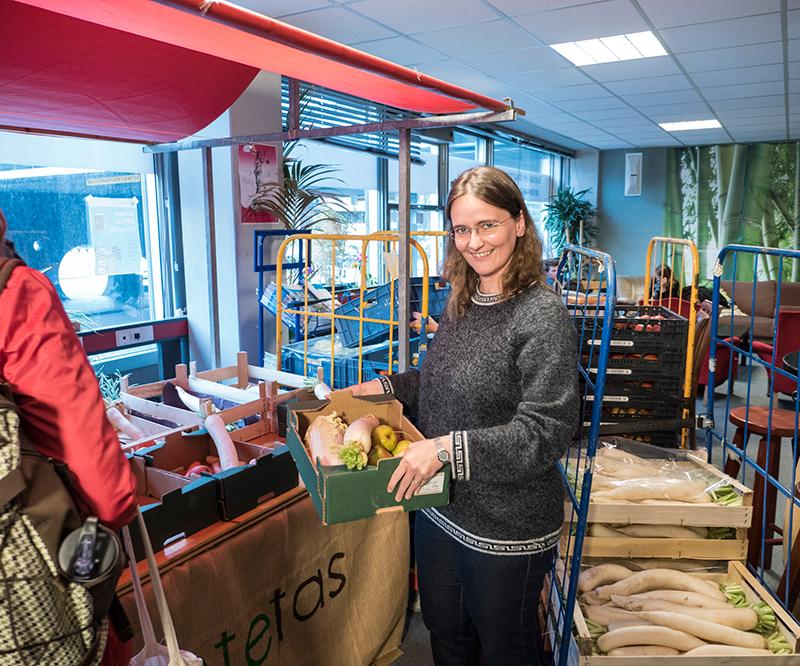Cristina Grasseni and her Groentetas

Cristina Grasseni is an Associate Professor in cultural anthropology, and poses for her picture at the Groentetas initiative.
Who are you and what do you do?
"My name is Cristina Grasseni. I am an Associate Professor in the Department of Cultural Anthropology, in the Faculty of Social and Behavioural Studies. I’ve been in Utrecht for just over a year, and teach at the Academic Masters Program Cultural Anthropology: Sustainable Citizenship (among other things). I am also the co-founder of CORES LAB, a transnational community of practice that researches Networks and Practices of Sustainable Economy."
Where is this place?
"This is the Groentetas, a long-standing non-profit student-driven initiative that sells local and organic vegetables and fruit to UU students at cost price. It is an example of citizens’ driven, bottom-up sustainable practices that I am interested in as a researcher. You can find the kiosk in the Green Office at the entrance of the Unnik/Ruppert/Educatorium Building on De Uithof.
"I do most of my teaching in these buildings, though I am based in the Sjoerd Groenmangebouw. There is a lot going on at the Uithof in terms of sustainability and student engagement, for example the lively summer rooftop café De Daktuin on top of the parking garage next to the University Library."
What is special about your research?
"As anthropologists, our main research practice is fieldwork, which entails going out in the world to meet people, in groups and communities. We spend considerable time with them, documenting and interpreting their practices, dilemmas, and the serious business of making a living. There are many ways of producing ethnographies: as books and articles, but also through films, photographs, digital media, and soundscapes.
"During my research, I have lived with families of dairy farmers in the Italian Alps, followed the development of community projects in dilapidated post-industrial towns of the United States, and am now tuning in on the rich discourse and practices of Dutch transition to sustainability: from urban agriculture to alternative economies.
"What is inspiring about working as a cultural anthropologist is that you can never forget about the complexity of social life, the voices and concerns of real people, and the diversity of their circumstances, priorities, and routines, which deserve respect. My office is but a window on the world."